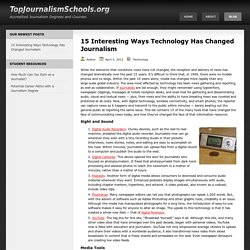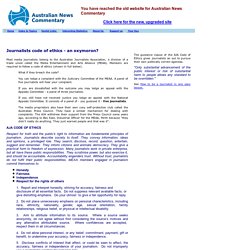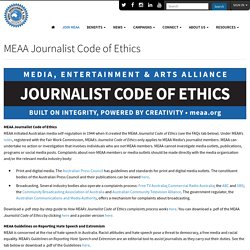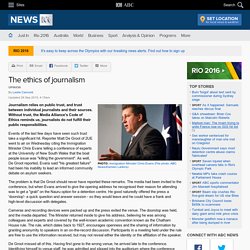

Nocookies. You have cookies turned off To use this website, cookies must be enabled in your browser. To enable cookies, follow the instructions for your browser below. Facebook App: Open links in External Browser There is a specific issue with the Facebook in-app browser intermittently making requests to websites without cookies that had previously been set.
This appears to be a defect in the browser which should be addressed soon. Open the settings menu by clicking the hamburger menu in the top rightChoose “App Settings” from the menuTurn on the option “Links Open Externally” (This will use the device’s default browser) Windows Enabling Cookies in Internet Explorer 9 Open the Internet BrowserClick Tools (or “gear” icon at top right hand corner) > Internet Options > Privacy > AdvancedCheck Override automatic cookie handlingFor First-party Cookies and Third-party Cookies click AcceptClick OK and OK Enabling Cookies in Internet Explorer 10, 11 Enabling Cookies in Firefox Enabling Cookies in Google Chrome Mac.
15 Interesting Ways Technology Has Changed Journalism » Author April 5, 2012 Technology While the elements that constitute news have not changed, the reception and delivery of news has changed dramatically over the past 25 years.

It’s difficult to think that, in 1999, there were no mobile phones and no blogs. Within the past 10 years alone, media has changed more rapidly than any large-scale global industry. The area most affected by technology has been news gathering and reporting, as well as collaboration. If journalists are old enough, they might remember using typewriters, newspaper clippings, messages at hotels reception desks, and snail mail for gathering and disseminating audio, visual and textual news — plus, their news and the ability to have breaking news was coveted and protected at all costs. Sight and Sound Digital Audio Recorders: Clunky devices, such as the reel-to-reel machine, predated the digital audio recorder. Media Tools Connectivity Research. Australian journalists code of ethics. Respect for the rights of others 1.

Report and interpret honestly, striving for accuracy, fairness and disclosure of all essential facts. Do not suppress relevant available facts, or give distorting emphasis. Do your utmost to give a fair opportunity for reply. 2. Do not place unnecessary emphasis on personal characteristics, including race, ethnicity, nationality, gender, age, sexual orientation, family relationships, religious belief, or physical or intellectual disability. 3. Aim to attribute information to its source. MEAA Journalist Code of Ethics. MEAA initiated press self-regulation in 1944 when it created the MEAA Journalist Code of Ethics (see the FAQs about the Code here).

Under MEAA’s rules registered with the Fair Work Commission, only MEAA’s journalist members are bound by MEAA’s Journalist Code of Ethics. MEAA can undertake no action or investigation that involves individuals who are not MEAA members. Complaints about non-MEAA members should be taken up with the appropriate media employer and/or media industry groups: The MEAA Journalist Code of Ethics Respect for truth and the public’s right to information are fundamental principles of journalism. MEAA members engaged in journalism commit themselves to: Honesty Fairness Independence Respect for the rights of others Journalists will educate themselves about ethics and apply the following standards: Report and interpret honestly, striving for accuracy, fairness and disclosure of all essential facts.
Making a complaint N.B. The ethics of journalism. Opinion Updated Journalism relies on public trust, and trust between individual journalists and their sources.

Without trust, the Media Alliance's Code of Ethics reminds us, journalists do not fulfill their public responsibilities. Events of the last few days have seen such trust take a significant hit. Reporter Matt De Groot of 2UE went to air on Wednesday citing the Immigration Minister Chris Evans telling a conference of experts at the University of New South Wales that the boat people issue was "killing the government".
The problem is that De Groot should never have reported these remarks. Cameras and recording devices were packed up and the press exited the venue. De Groot missed all of this. He takes up the story. In De Groot's own words, the Minister's minder, "did her best to encourage me not to run it," but he was unmoved. This version of events is disputed by others who were there. This is not a game. She was from SBS. Journalism ethics and standards. Principles of ethics and of good practice in journalism Journalistic ethics and standards comprise principles of ethics and good practice applicable to journalists. This subset of media ethics is known as journalism's professional "code of ethics" and the "canons of journalism".[1] The basic codes and canons commonly appear in statements by professional journalism associations and individual print, broadcast, and online news organizations.
While various codes may have some differences, most share common elements including the principles of truthfulness, accuracy, objectivity, impartiality, fairness, and public accountability, as these apply to the acquisition of newsworthy information and its subsequent dissemination to the public.[1][2][3][4] Evolution and purpose of codes of journalism[edit] Journalism is guided by five values: Honesty: journalists must be truthful.
Codes of practice[edit] ...public enlightenment is the forerunner of justice and the foundation of democracy. See also[edit]